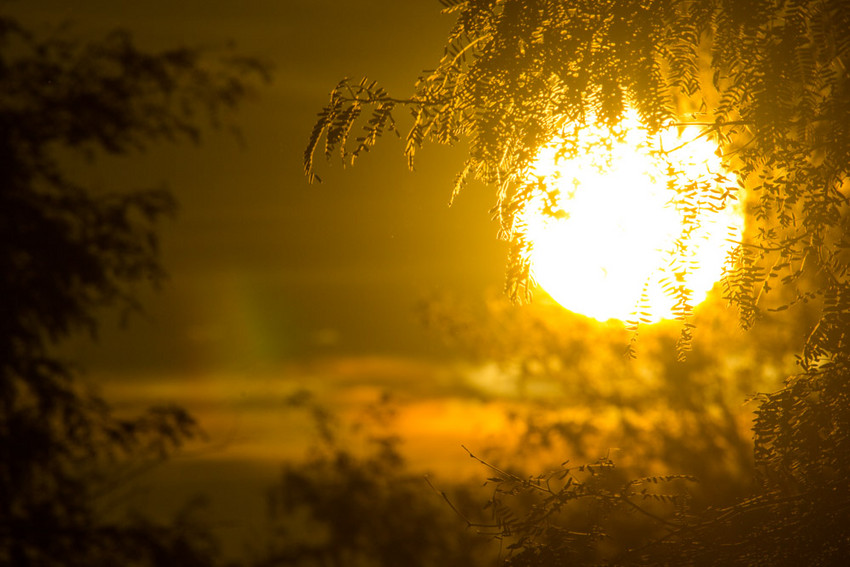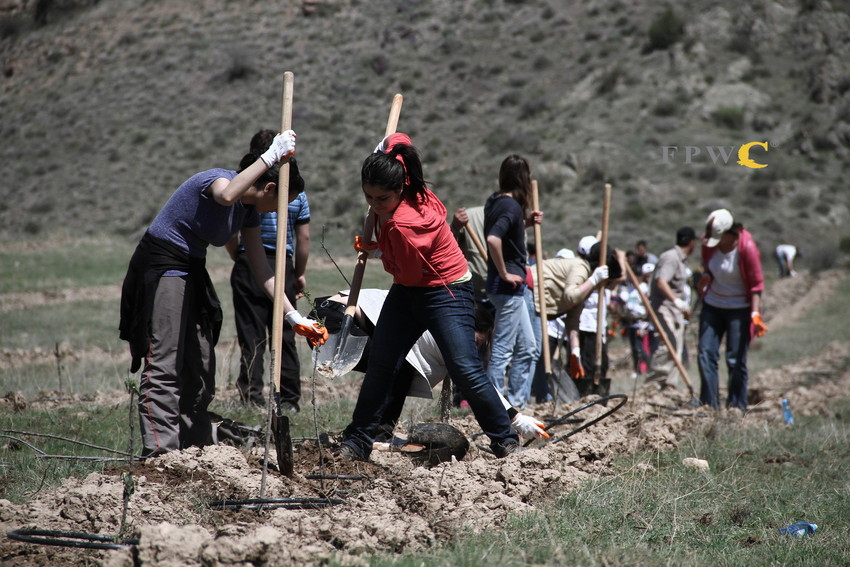
The theme for Earth Day 2020 is climate action in recognition of the challenge that climate change is, as well as the opportunities in place for us to do something about it. Climate change remains the biggest threat to the future of this planet. So, this Earth Day, World Land Trust has put together ten simple ways that you can help Earth out every day.
Little and Often
The thought of taking on climate change can be daunting, but every small step leads to positive change. We only have to look at the decrease in air pollution in cities around the world as lockdown measures were implemented to see how those steps add up to quantifiable change. By slowly and surely changing our daily habits to sustainable, environmentally-conscious ones, they become second nature.
Plant Native Species
There are so many beautiful plants in this world, and many will grow happily in different climates. Native plants are crucial to preserving biodiversity. They are also already suited for a UK climate, meaning that they require far less interference management and fewer chemicals to thrive. So next time you fancy sprucing up your garden, research some good, local plants that will bolster the natural ecosystem in your garden and avoid the use of chemicals. Even better, select plants that support pollinators such as bees that are vital for pollinating our own food supplies.

Meadow Vetchling, Kites Hill Reserve. Credit: WLT.
Grow Your Own
If you’re not green-fingered enough to have even thought about what plants to put in your garden, or if you have children that you’d like to instil a love of homesteading in, starting with a herb garden is a great way to show how we can grow our own food. Growing our own vegetables and fruit is as low impact carbon miles as you can get – especially if you harvest for seeds from your own crops too!
Reusable Water Bottles
They might seem convenient, but single-use water bottles are anything but. Investing in one decent reusable water bottle is far more economical and ecological than grabbing one – probably refrigerated – from the local shop. It really is no less convenient to fill up your bottle at home with tap water – filtered if necessary – than it is to grab and go in store.

Waterfall on the Green Trail, REGUA. © Lee Dingain.
Don’t Forget Your Glass
With so much talk about plastic pollution – and rightly so – over the last two years, we risk becoming complacent about other recyclables such as glass, which if it makes its way to landfill can take up to 1 million years to decompose. Check with your local council to see what recycling facilities you have available, and keep your eyes open when out and about as many stores and businesses are offering alternative recycling solutions as well.
Switch Your Lights
Next time you have a blown bulb, invest in an LED lightbulb. Not only do LEDs contain fewer harmful chemicals, they are also considerably more efficient than compact fluorescent bulbs. If you’ve ever noticed how much brighter an LED bulb is, it’s because 95 per cent of the energy converts to light, and just 5 per cent to heat.

Sunset in Campo Iris Reserve, Paraguay. ©Tetsu Espósito / Yluux.com.
Know Your Toilet Roll
This has been a topic of media interest in the UK recently. But assuming you can find any in your supermarket, there are now various types of eco-friendly toilet roll on supermarket shelves or available by subscription. The most commonly available are 100 per cent recycled, part-recycled and bamboo. Because some part recycled toilet paper is manufactured in Great Britain, its carbon footprint may be lower than that of a 100% recycled paper from overseas. Like with many other products, this can make it challenging to know which is the best to buy. Opt for recycled paper over virgin wood pulp, look for the FSC stamp (especially if you’re choosing bamboo), avoid bleached products and think about the recyclability of the packaging.
Go Manual
The human ability to invent tools to make the simplest of tasks even easier is magnificent – but is it always necessary? If a bit of elbow grease, effort or determination is likely to get the same result as an electric counterpart. Anything electrical requires energy, whether through charging or battery power. Next time you want to invest in a new tool for the home that has an manual counterpart, ask yourself if the environmental cost is worth it?

Tree planting in Armenia. © FPWC
Turn it Down
Avoid the annual on or off thermostat battle this year by choosing to compromise instead. By lowering the temperature of your heating by just one degree, you can reduce your annual energy use by up to 10 per cent.
Talk About it
Have conversations with your children, your friends, your parents and colleagues about the steps you’re taking to be greener in your daily life. But also, talk about why you love Earth, the extraordinary things you’ve seen on this planet, and sometimes the simplest things. Remember the thrill of seeing a ladybird as a child? That sense of wonder is universal and enduring; the natural world is full of stories, surprises and experience. Sharing those stories is the most powerful way that you can encourage others to act against climate change and other threats to this beautiful planet.
